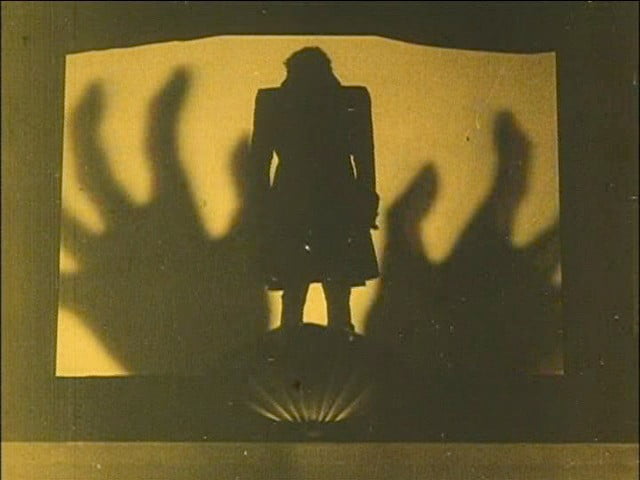
Germany, 1923, 85′
Arthur Robison
Alexander Granach, Max Gülstorff,
During a dinner given by a wealthy count (Fritz Kortner), his beautiful wife (Ruth Weyher) and four of her suitors come together at the 19th-century German manor. A magician (Alexander Granach), referred to as “Shadowplayer” in the cast list, rescues the count’s marriage by giving all the guests a vision of what might happen if the count cannot restrain his jealousy and the suitors continue to make advances towards his wife. The count challenges the man he perceives as his rival (Gustav von Wangenheim) to a duel. But did the events that occurred at the party really happen, or was it all an illusion conjured up by the magician?

Born in the United States to German parents, Robison moved to Germany when he was seven years old. After studying and practicing medicine, he decided to devote himself to filmmaking in 1914. His first film as a director was, in 1916, Nächte des Grauens, where he directed Werner Krauss and Emil Jannings. Among his collaborators, the name of cinematographer Fritz Arno Wagner stands out, who began working with him in 1921. Schatten – Eine nächtliche Halluzination, from 1923, was their most famous film, a classic example – with its claustrophobic atmosphere – of Weimar expressionist cinema. This was followed by two historical dramas produced by Erich Pommer, Pietro der Korsar and Manon Lescaut. Robison later worked in the United Kingdom, where he shot The Informer, and in the United States, where he was entrusted with several foreign language versions of films produced by MGM. He then returned to Germany, where he resumed working for UFA until his death in 1935 in Berlin, at the age of 52.

